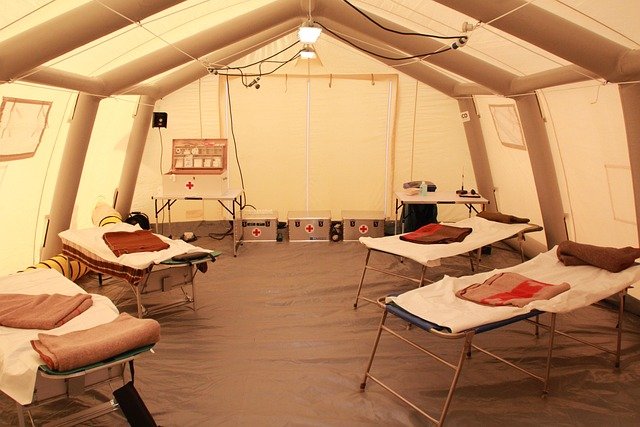Effective Asthma Management Tips and Treatment Options
Are you struggling with asthma? Discover common triggers, lifestyle changes, and effective treatments that can help you manage your asthma symptoms and breathe easier. Learn how medication, therapy, and healthy habits can support better lung health..

Effective Asthma Management Tips and Treatment Options
Asthma affects millions of adults worldwide, making it essential to understand the comprehensive range of treatment approaches available. Effective management involves combining medical interventions with lifestyle adjustments to achieve optimal symptom control and prevent asthma attacks.
Asthma Treatment Options for Adults
Adult asthma treatment typically involves a multi-faceted approach tailored to individual needs. Controller medications, such as inhaled corticosteroids, help reduce airway inflammation and prevent symptoms from occurring. Long-acting beta-agonists work alongside these medications to keep airways open for extended periods.
Biologic therapies represent newer treatment options for adults with severe asthma that doesn’t respond well to traditional medications. These targeted treatments address specific inflammatory pathways and can significantly improve symptoms for eligible patients.
How to Manage Asthma Symptoms Naturally
Natural management strategies can complement medical treatment effectively. Breathing exercises, particularly diaphragmatic breathing and pursed-lip breathing, help improve lung function and reduce anxiety during asthma episodes. Regular practice of these techniques can enhance overall respiratory health.
Identifying and avoiding personal triggers plays a crucial role in natural symptom management. Common triggers include allergens like dust mites, pet dander, pollen, and environmental irritants such as strong odors or air pollution. Maintaining detailed symptom and trigger logs helps identify patterns and avoid problematic exposures.
Lifestyle Changes to Improve Asthma Control
Regular physical activity, when properly managed, can strengthen respiratory muscles and improve overall lung function. Swimming is often recommended as an excellent exercise option for people with asthma due to the warm, humid environment of indoor pools. Gradual increases in activity levels, combined with proper warm-up routines, help prevent exercise-induced symptoms.
Weight management significantly impacts asthma control, as excess weight can worsen symptoms and reduce lung function. A balanced diet rich in anti-inflammatory foods, including omega-3 fatty acids, fruits, and vegetables, may help reduce airway inflammation.
Stress management techniques such as meditation, yoga, and adequate sleep contribute to better asthma control. Chronic stress can trigger asthma symptoms and interfere with proper medication adherence.
Medications for Asthma Relief
Quick-relief medications provide immediate symptom relief during asthma attacks. Short-acting beta-agonists, commonly known as rescue inhalers, work rapidly to open airways during acute episodes. These medications should be readily available and used according to healthcare provider instructions.
Oral medications, including leukotriene modifiers and oral corticosteroids, may be prescribed for specific situations. Leukotriene modifiers help block inflammatory substances, while oral corticosteroids are typically reserved for severe exacerbations or when inhaled medications prove insufficient.
Asthma Inhalers and Treatment Plans
Proper inhaler technique is fundamental to effective asthma management. Metered-dose inhalers, dry powder inhalers, and nebulizers each require specific techniques for optimal medication delivery. Regular practice and periodic review with healthcare providers ensure proper usage.
Personalized asthma action plans provide clear guidelines for daily management and emergency situations. These written plans outline daily medications, symptom monitoring strategies, and step-by-step instructions for handling worsening symptoms or asthma attacks.
Peak flow monitoring helps track lung function changes over time and can provide early warning signs of worsening asthma. Regular measurements help individuals and healthcare providers adjust treatment plans proactively.
| Treatment Category | Examples | Estimated Monthly Cost |
|---|---|---|
| Controller Inhalers | Fluticasone, Budesonide | $50-$300 |
| Rescue Inhalers | Albuterol, Levalbuterol | $30-$60 |
| Biologic Therapies | Dupixent, Xolair | $3,000-$4,000 |
| Nebulizer Treatments | Albuterol solution | $20-$40 |
Prices, rates, or cost estimates mentioned in this article are based on the latest available information but may change over time. Independent research is advised before making financial decisions.
Successful asthma management requires ongoing collaboration between patients and healthcare providers. Regular monitoring, medication adherence, and lifestyle modifications work together to provide optimal symptom control and improve quality of life. With proper management strategies in place, most individuals with asthma can lead active, fulfilling lives while maintaining good respiratory health.
This article is for informational purposes only and should not be considered medical advice. Please consult a qualified healthcare professional for personalized guidance and treatment.



